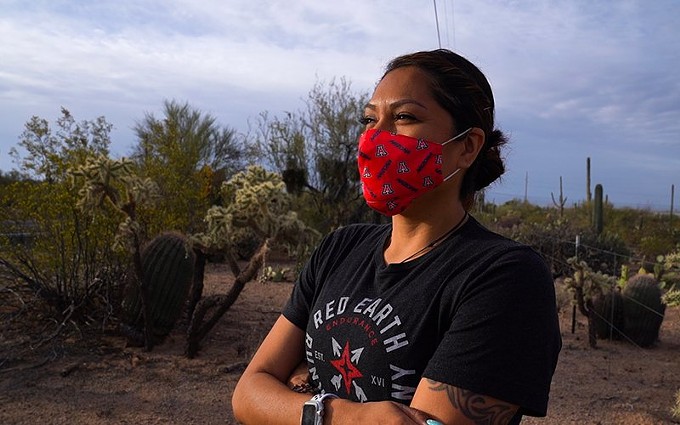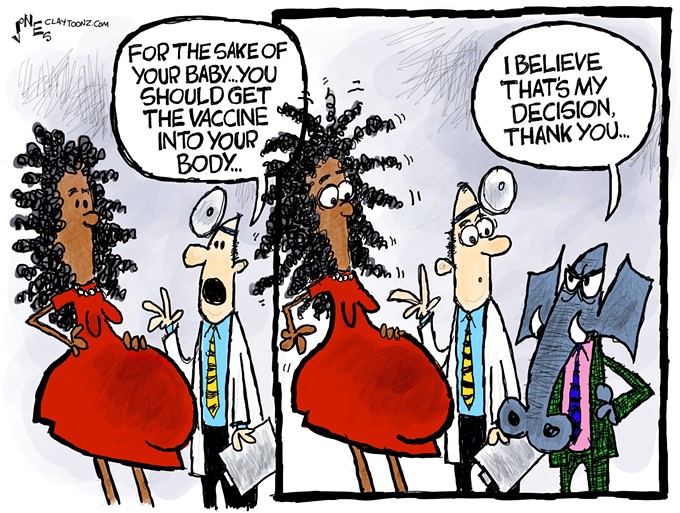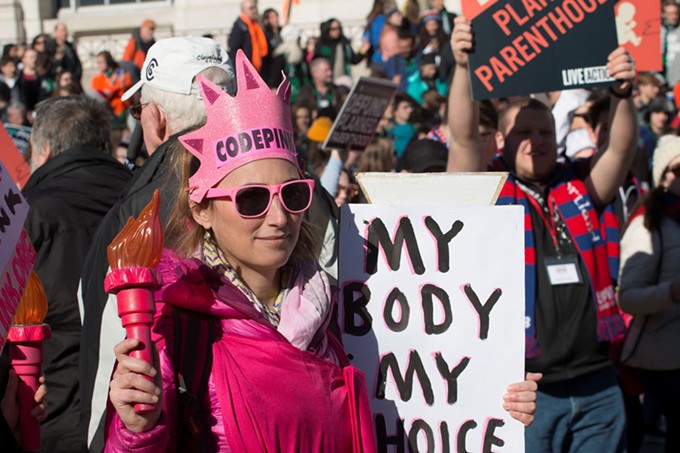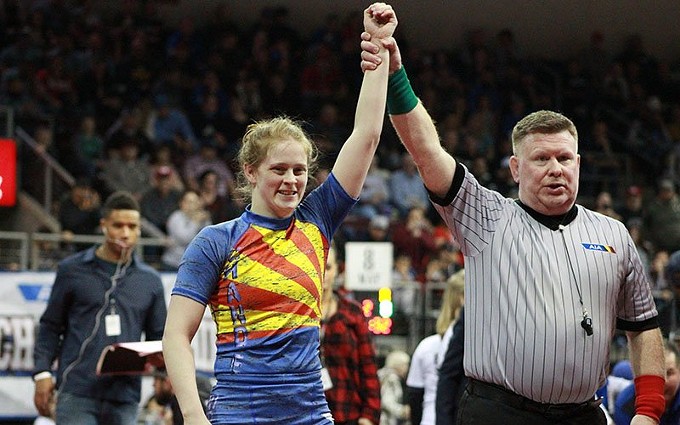Tuesday, October 5, 2021
Monday, October 4, 2021
The Women’s Foundation of Southern Arizona has changed its name to the Women’s Foundation for the State of Arizona and will expand the scope of its work to more formally include women and girls throughout the state.
“Decades of experience and proven positive outcomes make us qualified to add the State as a whole to our focus so we can achieve a greater impact,” said Amalia Luxardo, WFSA CEO.
“Our research and legislative advocacy work have included and benefited the state for several years. We feel that at this moment in time – after watching the pandemic destroy decades of momentum for women in mere months – it is essential that we scale the rest of our work to impact women and girls across Arizona.”
WFSA also launched a survey on Monday, Oct. 4, to learn about the issues facing women and girls in the state, and help identify opportunities for future legislative policy, grants, and pilot programs. Survey results will be available in December.
To access the statewide survey, visit womengiving.org or survey.alchemer.com/s3/6540060/AZIssuesSurvey
Thursday, September 23, 2021
WASHINGTON – Nine Arizonans are among the more than 500 female athletes who signed on to a brief to the Supreme Court this week challenging Mississippi’s restrictive new abortion law.
The Phoenix Mercury’s Brittney Griner and Diana Taurasi joined seven University of Arizona swimming alumnae and hundreds of other club, collegiate and pro athletes who said overturning Roe v. Wade, which the Mississippi case could lead to, would “violate their most fundamental liberties.”
Christine “Crissy” Perham, an Olympic gold medalist and two-time national champion for the Wildcats in the 100-yard butterfly, said in the brief that she “accidentally became pregnant” while on birth control during her sophomore year in Tucson. She said she could “count on one hand how many people I’ve told about my abortion. Until now.”
“I’m finally speaking up and sharing my story because there shouldn’t be a stigma surrounding personal healthcare decisions,” she said in the friend-of-the-court brief.
One expert called the filing just the latest instance of growing activism by athletes.
“This is another example, like Black Lives Matter from last summer and the U.S. women’s national soccer team’s fair-pay argument, that shows national activism like the Olympics in 1968 and Colin Kaepernick are now so public and spreading,” said Steve Ross, a professor of law at Penn State University.
The athletes’ brief is one of the scores filed on both sides of the case, Dobbs v. Jackson Women’s Health Organization, which challenges a Mississippi law that prohibits abortions after 15 weeks of pregnancy. The law would allow abortions after that in cases of “severe fetal abnormality” or a medical emergency for the woman, but there are no exceptions for rape or incest.
The law was overturned by lower courts, which cited the Supreme Court’s 1972 Roe v. Wade decision that recognized a woman’s right to an abortion and subsequent rulings that protected that right before a fetus was viable outside the womb.
Tuesday, August 24, 2021
Friday, August 20, 2021
Wednesday, August 18, 2021
Monday, August 16, 2021
Accessing contraceptives is a health necessity for many women. Contraceptives help prevent unwanted pregnancy while reducing the risk of diseases including endometrial, ovarian, and colorectal cancers. However, finding and obtaining the right contraceptive method often places an undue financial burden on women, particularly low-income women.
One of the many achievements for patients in the Affordable Care Act was defining contraceptive as an essential health benefit that could be covered at no cost under the bill. This has led to a dramatic decrease in costs for most contraceptives and a dramatic increase in contraceptive use.
Unfortunately, while the Affordable Care Act mandates coverage across the full range of contraceptive methods, it does not mandate coverage across the full range of FDA-approved contraceptive products, and, despite the intent of the bill, contains loopholes that allow insurance companies to deny coverage of certain products to women who need them and shift costs onto patients.
Why does this matter? Not every contraceptive product is right for every woman. Different products have different side effects interactions with other medications and conditions that impact women to varying extents, and some products that are effective for one woman may not work at all for another.
Wednesday, August 4, 2021
ProPublica is a Pulitzer Prize-winning investigative newsroom. Sign up for The Big Story newsletter to receive stories like this one in your inbox.
For almost a decade, ProPublica has been reporting on the ways TurboTax has fought efforts to make tax prep easier and less costly. As part of that series, we published a story about how to get your money back from TurboTax if you were charged for a service that should have been free.
People flooded the TurboTax customer service line — maybe you were even one of the callers. Some of them told us all they had to do was mention ProPublica to get a refund.
All of a sudden, customer service agents were hearing a lot about ProPublica. Some of them started to give us a call.
It turns out that TurboTax’s customer service agents were part of a much larger group of agents who work as independent contractors for large companies like Disney and Airbnb without benefits or job security. Previously, our reporters investigated the layers of corporate insulation that protect these companies from being held accountable for these agents’ working conditions. This month, reporters Ariana Tobin, Ken Armstrong and Justin Elliott published a story highlighting the voices of customer service agents themselves.
Our reporters heard from hundreds of customer service agents with similar experiences. People were cursed at or called racial slurs. Male callers made sexually explicit comments or masturbated over the phone. One told an agent, “I really like the way you type.”
Almost all these agents felt that they were not allowed to hang up. Arise said in a statement, “Service Partners interacting with individual customers through the Arise® Platform are protected by both client and Arise policies and processes that include the ability to disconnect callers without penalty or transfer these calls to support resources if they are unable to de-escalate the situation.” Other companies gave similar statements saying agents were free to disconnect callers.
We spoke with Ariana about the project as well as the unique role gender plays in the world of customer service. Parts of our interview were edited for length and clarity.
Monday, June 14, 2021
PHOENIX – Michele McCann says she has “loud mom syndrome.”
At all of her three daughters’ games, she can be heard cheering for not only her children, but everyone on the team.
“I’m the loud mom in the crowd,” she said. “I’ve always been very determined to make sure that they know that they’re appreciated and there is at least one parent that’s extremely proud of them and loves watching them grow.”
Experts see value in her enthusiasm. A 2020 Women’s Sports Foundation study found that parental support has a significant impact on whether girls stay in sports in a way it doesn’t for boys. Additionally, by 14, girls drop out of sports at two times the rate of boys.
McCann and her husband, Tye, live with their daughters in Cordes Lakes, just an hour north on the I-17 from Phoenix. Senior Kylie, sophomore Danielle and eighth-grader Taylor play volleyball in the fall, basketball in the winter and softball and track in the spring. The high schoolers also play basketball over the summer.
McCann attends every practice and game she can. If she can’t travel to away games, she calls often to check in. She quit playing sports in high school because she wasn’t supported.
“My parents didn’t back me,” McCann said. “They weren’t there when I played sports, and it broke my heart. So I determined that I was not going to do that for my daughters. I was going to be everywhere they needed me.”
Nicole Zarrett, an associate professor of psychology at the University of South Carolina who co-authored the Women’s Sports Foundation study, said more girls drop out because playing sports are inherent in the way boys are raised. If parental support is minimal they have media celebrating boys in sports, supportive peer groups, role models on TV, and video games designed to show them they belong. For girls, those external resources are fewer.
“We’re looking at parenting being particularly important for girls because it may be the only resource they have in supporting their entrance and continuation,” Zarrett said.
Thursday, April 29, 2021

TUCSON – “Getting lost is the best part of trail running,” Marlinda Bedonie said with a chuckle as we shielded our eyes from the morning sun, searching for our cars.
We spoke on a recent morning while trekking through Tucson Mountain Park on a mostly flat, single-track loop trail. Dipping in and out of washes and brushing against the creosote along the trail, the Tohono O’odham and Navajo mother and I chatted – out of breath – as we shared our running journeys and spoke about our families.
When we came to what we thought was the end of our loop, we realized that although we’d learned a lot about what we share in common, neither of us had any idea where our cars were.
Sometimes, getting lost can be part of finding yourself. In the past four years, Bedonie, 41, has found a passion for running and representing her culture in the sport. She often is featured on the Native Women Running Instagram page highlighting her half-marathons, 10Ks and other races.
Even when she’s jogging Arizona trails solo, she’s far from alone.













